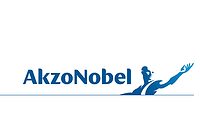WASHINGTON — The American Coatings Association (ACA) issued a statement today regarding the European Chemicals Agency’s Risk Assessment Committee issuing an advisory opinion to the European Commission to classify titanium dioxide as a Category 2 (Animal Evidence) carcinogen. The entire statement is published below.
“Titanium dioxide (TiO2), a commonly used white pigment in paints and a variety of other products, is under review to establish a possible hazard classification under the European Union’s (EU) Classification, Labelling and Packaging Regulation (CLP). The CLP is an ongoing regulatory program to harmonize classifications of substances based on hazard properties (but does not consider risk of human exposure). Classifications have implications across the EU for product labels, formulation restrictions and worker protection.
“As part of this process, the European Chemicals Agency’s (ECHA) Risk Assessment Committee (RAC) issued an advisory opinion to the European Commission (EC) to classify TiO2 as a Category 2 (Animal Evidence) carcinogen via inhalation. The detailed rationale for this advisory opinion will be released in a few months, after which the EC will then consider and issue a final approved hazard classification. There is considerable industry concern that the basis for the opinion is flawed and does not inform on risk to humans. It is important to consider that the risks profiled are not attributable formulated products, like paint, where TiO2 dust is embedded in the mixture.
“The American Coatings Association (ACA) believes that any evaluation of TiO2 hazards should be based on sound science. ACA recently filed a brief with the World Trade Organization (WTO) stating that classification as a carcinogen is not warranted and could unnecessarily constrain or even eliminate certain products from international trade. ACA coordinated its filing with the WTO through the U.S. Trade Representative, filing in conjunction with other trade associations.
“ACA also supports the position of the Titanium Dioxide Manufacturers Association, which is heading the effort to advance sound science on the classification issue, working in concert with many downstream industries to ensure responsible use.”





Report Abusive Comment